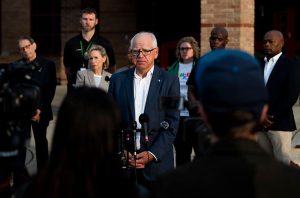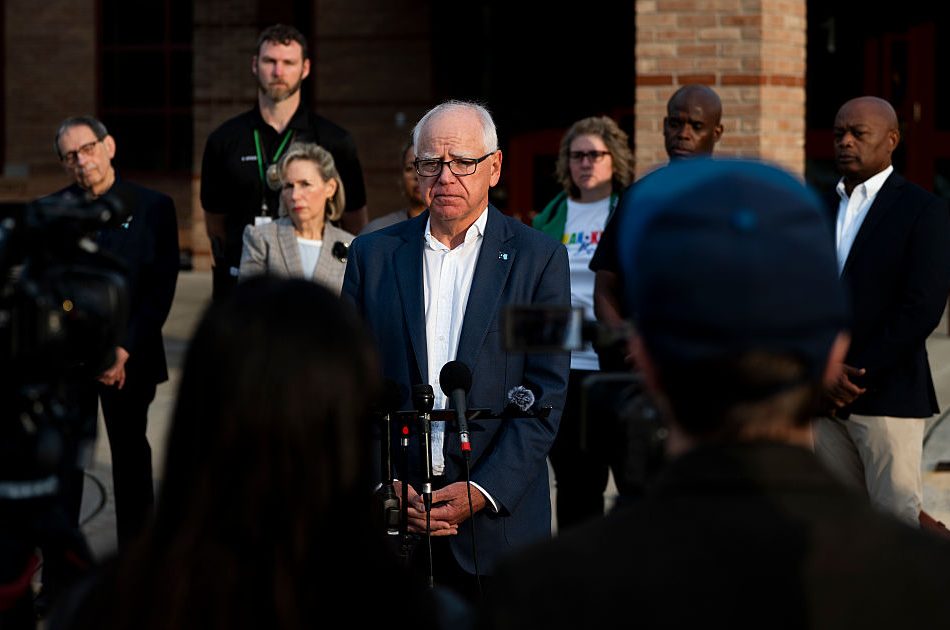No easy choices in the new world order
Nine days since the start of the Russian invasion and the news out of Ukraine is no less frightening. The latest alarming development: reports of fighting between Russian and Ukrainian troops at Europe’s largest nuclear power plant.
Washington remains understandably fixated on the latest on-the-ground development, but, sooner or later, American policymakers must grapple with the long-term consequences of Russia’s actions. How has the world changed? And how must the United States adjust?
In the Washington Examiner, Damir Marusic offers a useful sketch of the new multipolar world, full of hazards, but also opportunities. “It is not a forgone conclusion that America itself, or even more broadly speaking, ‘the West,’ will be weaker in this multipolar world,” he writes. “By some measures, the West may even come out stronger. But the limits of its power will be much more clearly market out. And that will have profound implications for the future.”
For example, Russian aggression has caused European powers to take their own continent’s security seriously. That makes America’s pivot to Asia a real possibility. Meanwhile, this uncertain new era, and the economic isolation of the world’s largest exporter of gas and third largest exporter of oil, could prove a boon to America’s energy industries.
But to succeed in this new world order will be no easy feat. Zoom out from urgent questions about Ukraine’s immediate future, and the difficult strategic questions come thick and fast. For example: what is the goal of sanctions against Russia? Punishment for a war that will be lifted if the shooting stops, or something more expansive? Can there be a return to normal relations with Putin’s Russia after this? What, if anything, can be done to isolate Russia without inadvertently fortifying a dangerous new friendship between Russia and China? How should the war affect America’s pre-existing climate change commitments? These questions, and many others, must all be weighed in the context of extreme uncertainty: the war could last a week or a decade. Putin could be felled in a palace coup or remain in power for another twenty years.
In recent days, historians and strategists have pointed out that great-power competition is back. Others have announced the return of history. These grand claims are all true. But the big-picture clarity they seem to offer masks the hundreds of difficult choices they entail.
*** Sign up to receive the DC Diary in your inbox on weekdays ***
The Stone tapes
The Washington Post this morning published footage of Roger Stone gathered over two years by a Danish camera crew working on a documentary on the proud “dirty trickster”, chronic attention seeker and once a close Trump acolyte. In one of several remarkably candid clips, Stone is packing his bags at the Willard Hotel as he watches the January 6 attack on the Capitol on television. “I think it’s really bad for the movement,” he says. Elsewhere, Stone is seen setting up a “stop the steal” operation ahead of the 2020 election and discussing securing pardons for himself and other Trump allies.
In footage from January 20, 2021, the day of Biden’s inauguration, Stone is on the phone and ranting: “I’m done with this president [Trump]. I’m going to go public supporting impeachment… I have no choice. He has to go. He has to go. Run again! You’ll get your f—ing brains beat in.” Awkward words to be filmed uttering for someone who, here in 2022, is an enthusiastic supporter of a Trump run in two years’ time. Stone refused to be interviewed by the Post and even speculated that the clips published by the Post might be “deep fakes.”
Meet the new BBB
Build Back Better is dead. Long live Building a Better America. The president’s languishing social spending bill may be not be any closer to becoming law. But at least it has a new name. “This is formal,” said Jen Psaki of the shiny slogan. Asked about progress in any negotiations over what this pared-back version of Build Back Better might include, she said: “There have been ongoing communications with every member of the Senate, Democratic Senate, and many, many, many Republicans. I’m not going to detail those from here.”
What you should be reading about
Freddy Gray: In Lviv, the mood is inspiring — and fanatical
Leon Hadar: America’s long history of sitting out Russian invasions
Slavoj Žižek: Putin’s Stalinist playbook
Gina Bellafonte, New York Times: Get out of your pajamas, the pandemic is over
Matt Levine, Bloomberg: Nobody wants Russian assets
Antonio Garcia Martinez, the Pull Request: Why Fukuyama has always been right
Poll watch
President Biden Job Approval
Approve: 40.9 percent
Disapprove: 54.1 percent
Net approval: -13.2 (RCP Average)
Pennsylvania Republican Senate primary
David McCormick: 25 percent
Mehmet Oz: 19 percent
Carla Sands: 11 percent (TargetPoint)

























